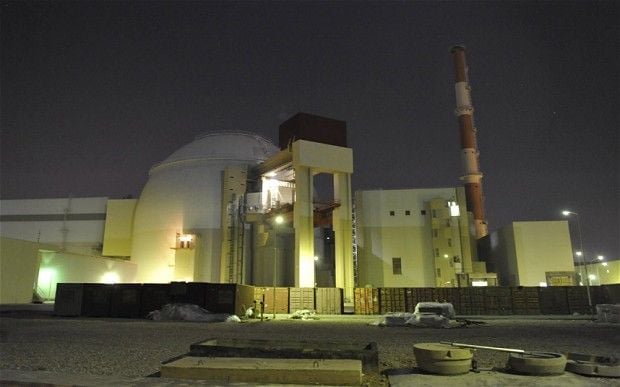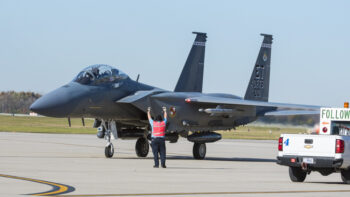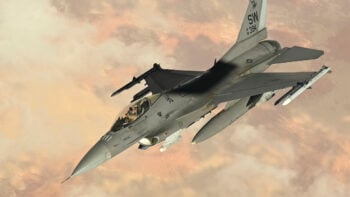
CORRECTED: Changed Headline From ‘ICBM’ to ‘Ballistic Missile’
TEL AVIV: Israeli Defense Forces (IDF) intelligence says Iran is two years from a capability to equip one of its ballistic missiles with nuclear warhead.
Such a development would constitute a red line, an Israeli official says: “The clock ticks toward this point, and Israel will know exactly when the foot will be put on the red line or very near to it.”
However, Iran has not yet built a nuclear weapon. And reducing a nuclear weapon to the size and weight allowing it to be carried on a ballistic missile is challenging, though Iran has demonstrated impressive engineering chops in some of its nuclear work.
Once Iran builds such a warhead, Israeli experts told Breaking D that all Iranian ballistic missiles with at least a diameter of 4.1 feet can be fitted to carry one. An example is the Shahab-3, a medium-range ballistic missile developed by Iran and based on the North Korean Nodong-1. The Shahab-3 has a range of 620 miles.
According to foreign sources, Israel’s intelligence apparatus is focused on the Iranian nuclear plan and does not need the data released from time to time by the UN officials that are supposed to monitor the country’s capabilities.
All signs indicate that Israel has been preparing a major plan if Iran attacks or gets to this red line.
Two nights ago, for example, “an unknown force” attacked an Iranian missile shipment at the largest Syrian air base, known as T-4, sources here say. So, while hostilities may get much hotter should Iran cross the red line, hostilities appear to be already playing out across the region almost day by day.
The question now is, will the U.S assist Israel if it decides to attack the Iranian nuclear facilities or will it have to retaliate after a direct Iranian attack probably with missiles?
On the record, Israeli experts say they believe that if Washington reaches the conclusion that Iran is an immediate nuclear threat, it will act with Israel.
But when talking off the record, some show great concern, especially if the coming elections in the U.S bring a Democrats to power. “They don’t like the fact that Benjamin Netanyahu puts all his cards on Trump and that may be reflected in the way they will conduct their relations with Jerusalem ” one expert said.
In the past, the U.S did everything it could to stop Israel from attacking the Iranian nuclear facilities.
Will the US allow Israel to use huge American stockpiles of weapon systems stored in Israel is another crucial question. The War Reserves Stock Allies-Israel program, capped at $1.2 billion, is composed of all types of weapons systems. The location of the stockpiles, along with the types and quantities of ammunition, are classified.
Israel in recent years has built the capabilities for a major blow to disable Iran’s nuclear facilities. Sources say the preparations include huge investments in highly classified “tools.”
And to add to the tension, some reports claim that Israel has asked the U.S for a “number” of air-dropped bombs that have the power to penetrate some of Iran’s underground nuclear facilities. It’s unclear if this refers to MOAB or to other US weapons designed to penetrate bunkers and deeply buried facilities.
Air Force awards SNC $13B contract for new ‘Doomsday’ plane
The win is a major victory for the firm in a competition that saw the surprise elimination of aerospace giant Boeing.


























